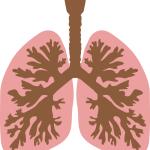Through education and taxation, the struggle to end tobacco smoking has made tremendous gains over the last fifty years; some believe that we are entering the final phase of stopping the plague.
smoking
There's no doubt about it. E-cigarettes have the potential to save millions of lives.
We often tend to think of rural environments as being less polluted than our cities — fewer cars, less air pollution, etc. Thus we might expect folks living in rural areas to have fewer lung-related ailments.
Last week, international media outlets reported that asparagus causes cancer. It does not.
My wife and I travel frequently from our home in Seattle to Europe to visit her parents. I've been across the pond 20 times, and I've visited 18 countries there.
E-cigarettes are "effective in helping people quit smoking" and "95% safer than smoking."* Additionally, there are "no health risks to bystanders."
The King County Health Department, which serves mostly the city of Seattle and its suburbs, has recently earned a reputation for being driven by politics rather than by evidence-based medicine or common sense.
There is good news and bad news from the 2016 National Youth Tobacco Survey, published in the Morbidity and Mortality Weekly Report.
Beginning in May of this year, all cigarettes sold in the UK must be packaged to standards regulating material, size, shape, opening mechanism and more importantly with plain packaging.












